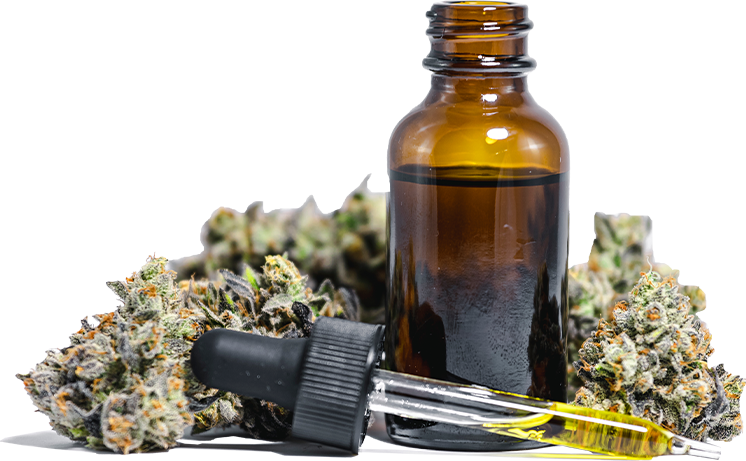Medical Marijuana Card Ohio
Get your Ohio Medical Marijuana Card Today
Get your Ohio medical marijuana card today. An Ohio medical marijuana referral from The Boster Center is quick and easy, and you’ll be on your way to symptom relief in no time.
Medical Marijuana
Doctor
Dr. Aaron Boster is a renowned, fellowship-trained neuro-immunologist with a specialty in MS, and is a licensed medical marijuana recommender.
All Conditions
Accepted
All qualifying medical conditions are considered for certification.
In-Office & Tele-visit
Appointments
Convenient in-office and tele-visits are available to accommodate your busy schedule.
Medical Marijuana
Recommender
Comprehensive understanding of medical cannabis and CBD products.

Untreated Symptoms Can Leave You Feeling Helpless
Unaddressed or under-addressed symptoms can leave you feeling hopeless. It’s hard to function at your best when you’re in pain or experiencing anxiety and insomnia. Experience relief through medical marijuana.
You Don’t Have to Live with Debilitating Symptoms
Why suffer from anxiety, insomnia, and pain when the answer could be medical marijuana?
Dr. Aaron Boster is not only a world-renowned neurologist specializing in MS, but he is also a leading expert in medical marijuana. His team at the Boster Center is ready to help you obtain your medical marijuana card quickly and easily so you can live your best life.
Fast relief of chronic and debilitating symptoms
Quick in-office or telehealth visit for Ohio Medical Cannabis card evaluation

Medical Marijuana is a Legal Treatment for a Variety of Medical Conditions
Let us help you identify the root cause of your symptoms, and get you on a symptom-relieving medical marijuana treatment regimen. Here are some of the qualifying conditions for medical marijuana:
Multiple Sclerosis
MS is a disease in which the immune system attacks the protective sheath (myelin) that covers nerve fibers and causes communication problems between your brain and the rest of your body.
Can marijuana help treat MS?
Cannabis may be beneficial for people with MS. Scientific evidence suggests that it can lessen pain, muscle problems, and bladder issues.
Chronic Pain
Chronic pain is pain that is ongoing and usually lasts longer than six months. This type of pain can continue even after the injury or illness that caused it has healed or gone away.
Which is better for pain, CBD or marijuana?
Tetrahydrocannabinol (THC) seems to have a greater effect on the way the mind perceives pain, whereas Cannabidiol (CBD) may work to ease pain at the local source.
Post-Traumatic Stress Disorder (PTSD)
PTSD is a mental health condition triggered by experiencing or witnessing a terrifying event. Symptoms may include flashbacks, nightmares, severe anxiety, and uncontrollable thoughts that can bring about pain, sweating, and nausea.
How does marijuana help people with PTSD?
Because it is a sedative, marijuana can relieve tension and anxiety in some individuals. As a result, recreational cannabis is common among people with PTSD.
Fibromyalgia
Fibromyalgia is a disorder characterized by widespread musculoskeletal pain accompanied by fatigue, sleep, memory, and mood issues. Fibromyalgia amplifies pain by affecting how your brain processes pain signals.
Can medical cannabis relieve fibromyalgia symptoms?
Medical cannabis may help alleviate some symptoms of fibromyalgia, a condition characterized by chronic pain, fatigue, difficulty sleeping, and memory problems.
Inflammatory Bowel Disease (IBD)
Inflammatory bowel disease (IBD) is an umbrella term used to describe disorders involving chronic digestive tract inflammation. Types of IBD include Crohn’s, Ulcerative Colitis, and Microscopic Colitis.
How can I stop IBD pain?
The number one reason patients use medical cannabis is to control pain. Patients with IBD also reported improvements in joint pain, abdominal pain, and cramping after using medical cannabis. Improvements in sleep and reduced diarrhea, and nausea were also reported after using cannabis.
Parkinson’s Disease
Parkinson’s disease is a progressive nervous system
disorder that affects movement. Symptoms start gradually, sometimes with barely noticeable tremors, and lead to impaired balance and motor skills, plus speech issues.
Why does marijuana help with Parkinson’s?
Marijuana not only improves motor and non-motor activities but also has neuroprotective properties that help to improve symptoms of PD and delay its progression.
Spinal Cord Injury (SCI)
A spinal cord injury is a damage to the spinal cord that results in a loss of function, mobility, and/or feeling. Frequent causes of spinal cord injuries are trauma or disease.
Can marijuana be used to recover from a spinal cord injury?
While there is no cure for patients who have a spinal cord disease or injury and experience partial or full paralysis, cannabis can help provide relief from a variety of symptoms that leave these individuals feeling trapped in their bodies.
Traumatic Brain Injury (TBI)
TBI is a form of acquired brain injury that occurs when a sudden trauma causes damage to the brain. TBI can result when the head suddenly and violently hits an object, or when an object pierces the skull and enters brain tissue.
How does medical marijuana help with traumatic brain injury?
Cannabis reduces traumatic brain inflammation allowing your body to cope with stress signals from the environment with the help of the endocannabinoid system.
AIDS/HIV
HIV is a virus that attacks cells that help the body fight infection, making a person more vulnerable to other infections.
How is medical marijuana used by people with HIV/AIDS?
Medical cannabis is commonly used to relieve nausea, vomiting, and appetite loss sometimes caused by HIV infection or by medications used to treat HIV. Research has consistently found that these side effects are the leading reason patients interrupt or discontinue antiretroviral therapy (ART).
Amyotrophic Lateral Sclerosis (ALS)
ALS, also known as Lou Gehrig’s disease, is a motor neuron disease that brings about the death of neurons in the brain and spinal cord that control voluntary muscles.
Is medical marijuana good for ALS?
There is growing evidence that the use of medical marijuana can help treat the symptoms brought on by having ALS. Medical marijuana has the potential to relieve pain, seizures, muscle spasms, and involuntary movements. Currently, medical marijuana has not been proven to cure ALS or stop disease progression.
Alzheimer’s Disease
Alzheimer’s disease is a progressive disorder that causes brain cells to degenerate, destroying memory and other important mental functions.
Does marijuana help with dementia?
Medical cannabis can have a calming effect on some of the behavioral symptoms of dementia and Alzheimer’s disease.
Cancer
Cancer is a group of diseases involving abnormal cell growth with the potential to destroy healthy cells and invade or spread to other parts of the body.
How can marijuana affect the symptoms of cancer?
Medical marijuana can help treat nausea and vomiting from cancer chemotherapy, treatment of neuropathic pain, improve food intake, and decrease the need for more medicine.
Crohn’s Disease
Crohn’s disease is an inflammatory bowel disease that causes inflammation of the digestive tract, which can lead to abdominal pain, severe diarrhea, fatigue, weight loss, and malnutrition.
Can medical marijuana improve Crohn’s disease symptoms?
Smoking cannabis has improved Crohn’s symptoms, including pain, nausea, and decreased appetite. However, there is currently no evidence that medical cannabis can reduce Crohn’s inflammation or improve disease activity.
Chronic Traumatic Encephalopathy (CTE)
CTE is a neurodegenerative disease caused by repeated head injuries. Symptoms do not typically begin until years after the injuries and can include behavioral problems, mood problems, and problems with thinking.
What symptoms of Chronic Traumatic Encephalopathy can medical marijuana treat?
Medical marijuana seems to help with certain CTE symptoms such as memory loss, aggressiveness, anger and irritability, suicidal behavior or depression, and progressive dementia.
Epilepsy (Seizures)
Epilepsy is a central nervous system (neurological) disorder in which brain activity becomes abnormal, causing seizures or periods of unusual behavior, sensations, and sometimes loss of awareness.
What effect does marijuana have on seizures?
Marijuana has antiepileptic effects, but these may be specific to partial or tonic-clonic seizures. In some animal models, marijuana or its constituents can lower the seizure threshold.
Glaucoma
Glaucoma is a group of eye conditions that damage the optic nerve, which is vital for good vision. This damage is often caused by abnormally high pressure in your eye.
Does marijuana relieve eye pressure?
Medical marijuana can create a 25 percent IOP reduction in 60 to 65 percent of people with or without glaucoma.
Hepatitis C (Hep C)
Hep C is a liver infection caused by the hepatitis C virus (HCV). Hep C, which causes liver inflammation and can lead to severe liver damage, is spread through contaminated blood.
Is medical cannabis an effective treatment for HCV?
Medical marijuana is particularly effective at reducing nausea associated with the medications used to treat the virus.
Sickle Cell Anemia
Sickle cell anemia is an inherited red blood cell disorder in which there aren’t enough healthy red blood cells to carry oxygen throughout your body causing vision problems and episodic pain.
Does medical marijuana help with sickle cell anemia?
If you have more severe pain from sickle cell disease (SCD), a doctor may prescribe opioids like morphine, but these medications have risks, like addiction and overdose. For this reason, medical cannabis offers a better quality of life and helps people living with sickle cell manage their pain.
Tourette’s Syndrome
Tourette syndrome (TS) is a neurological disorder characterized by repetitive involuntary movements and vocalizations called tics.
Is marijuana good for tics?
Evidence shows that medical marijuana may be an effective treatment option for people with Tourette’s, helping reduce symptoms and their frequency.
Ulcerative Colitis (UC)
UC is an inflammatory bowel disease that causes long-lasting inflammation and ulcers in your digestive tract and also affects the innermost lining of your large intestine and rectum.
Can CBD help with ulcerative colitis flare-ups?
While CBD won’t cure UC, it may help make your symptoms more manageable and help reduce flare-ups.

Start the Process and See if You Qualify to Manage Your Symptoms with Medical Marijuana Products
We only accept qualified patients age 18 and older for a medical cannabis card and require documentation of a qualifying condition provided before the time of your consultation.
Please read all appointment options and their descriptions carefully before scheduling.
Qualify
Obtain documentation of qualifying medical conditions so Dr. Boster can review your medical history.
Schedule
Schedule an appointment with Dr. Boster for an in-person consult, or meet with the doctor via tele-visit.
Payment
The fee for an Ohio medical marijuana card evaluation is $200 for one calendar year.
Ohio Board of Pharmacy
Submit the $50 fee to the Ohio Board of Pharmacy, and your Ohio Medical Marijuana Card will arrive in the mail in a few business days.
Watch Our Videos To Learn More

Chronic Symptom Relief Can Be Yours with Medical Cannabis and CBD Products
With Ohio medical marijuana, you will feel relief from pain and other symptoms quickly depending on which form you choose to use. Edibles take longer to work but are less inflammatory to your system.
Experts & Patients Support Medical Marijuana Use
Frequently Asked Questions
What are the qualifications to get medical marijuana in Ohio?
If you think Ohio medical marijuana may help you manage your medical condition, connect with a licensed physician. Medical marijuana doctors can evaluate if you have a qualifying condition and can create your profile in the Patient & Caregiver Registry.
How much does medical marijuana cost in Ohio?
The initial consultation from Dr. Boster costs $200 and in addition, you pay the state registration fee of $50 to the Ohio Board of Pharmacy for your Ohio medical marijuana card. How much the actual medical marijuana costs will vary by Ohio dispensary, quantity, quality, and other factors.
Can I get a medical marijuana card online in Ohio?
Yes, you can do a tele-visit (Zoom) with Dr. Boster, who will evaluate you to determine whether you qualify for a medical marijuana card in Ohio.
Can I go to a dispensary without a card in Ohio?
No. Ohio is a 'closed-loop' state, meaning you can only legally purchase cannabis products from a licensed cannabis dispensary. If you have a medical card, you can buy medical marijuana at any licensed dispensary in Ohio.
Check out this interactive map to find an Ohio medical marijuana dispensary location near you.
Can you smoke in public with a Medical Marijuana card in Ohio?
No. You cannot smoke marijuana publicly even though you have an Ohio medical marijuana card. Ohio law does not allow for the smoking of marijuana in public.
Can you get a medical marijuana card for insomnia in Ohio?
Yes, you can get a medical cannabis card for insomnia, depression, anxiety, and many other conditions. You can receive a consultation for these and other conditions from a certified medical marijuana doctor for the State of Ohio.
How does Ohio medical marijuana days work?
Each medical marijuana patient's 90-day recommendation is now split into two 45-day fill periods. You can buy a 45-day supply at any time during the period. If you purchase your 45-day allotment before the end of your current period, you must wait for the new period to start before purchasing more. There is no rollover between periods, so if you don't use up your allowance during one period, you can only buy a 45-day supply when the next period begins.
